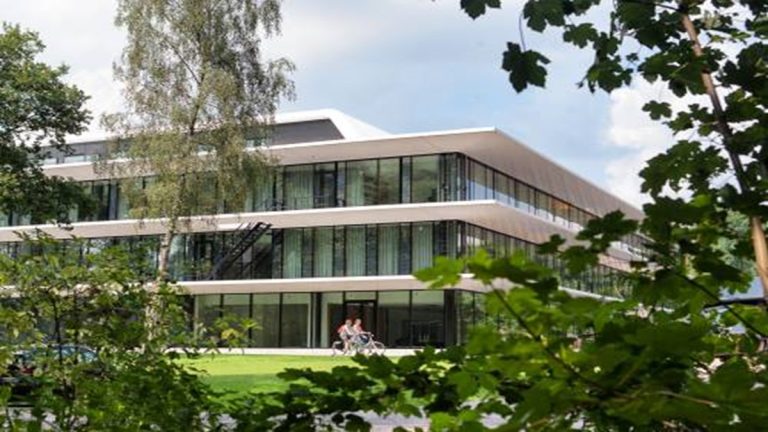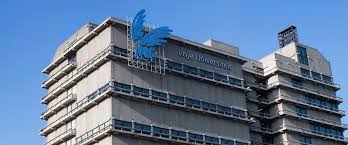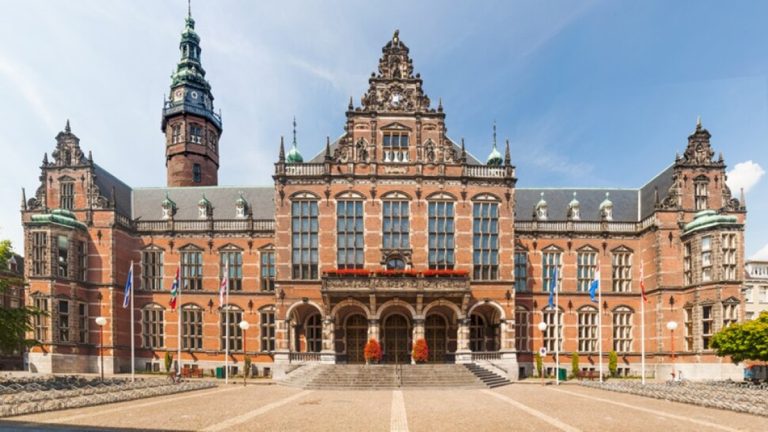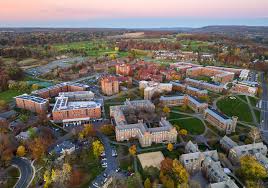Lund University, Faculty of Engineering, LTH, Dep. of Biomedical Engineering
Lund University was founded in 1666 and is repeatedly ranked among the world’s top universities. The University has around 47 000 students and more than 8 800 staff based in Lund, Helsingborg and Malmö. We are united in our efforts to understand, explain and improve our world and the human condition.
Lund University welcomes applicants with diverse backgrounds and experiences. We regard gender equality and diversity as a strength and an asset.
Description of the workplace
This post-doctoral position is part of the EU cofund research project AMBER, Advanced Multiscale Biological imaging using European Research infrastructures, will address scientific and sectoral gaps in biological imaging ranging from molecular, through cellular, to tissue, organ and organism levels of organisation, and is coordinated by LINXS Institute of advanced Neutron and X-ray Science. AMBER is funded by the EU Marie Skodowska-Curie (MSCA) COFUND scheme. Around 20 postdocs will be recruited in the fourth call, with each fellowship lasting 36 months.
AMBER has six core partners: Lund University/MAX IV, Sweden, the European Spallation Source (ESS), Sweden, the European Molecular Biology Laboratory (EMBL), Institut Laue-Langevin (ILL), France, the International Institute of Molecular Mechanisms and Machines, (IMOL), Poland, and the Leicester Institute of Structural and Chemical Biology, United Kingdom.
More information about the total announced post-doctoral positions within in the AMBER co-fund project – euraxess.se
This position will be placed at the Biomechanics group, Department of Biomedical Engineering, Lund University. The interdisciplinary research is focused on understanding the link between mechanics and biology in the musculoskeletal system, including related pathologies and repair of skeletal tissues. Experimental tissue characterisation methods, imaging and computational simulation techniques are used. The research is applied to understand orthopaedic problems and to develop better methods to improve tissues regeneration.
The group encompasses about 15 scientists (PhD students, post-docs, researchers and teachers) and is located at the BMC-building (Biomedical Center). The expertise includes computational and experimental mechanics of biological tissues, where a large part of the experimental work takes place at large scale facilities, using imaging, scattering and spectroscopy-based techniques. The group strives for an inclusive environment, largely based on collaboration and trust, where development towards an independent researcher is largely encouraged and supported.
The research is connected to the LTH profile area Engineering Health.
More information about the research group in Biomechanics at the Department of Biomedical Engineering – bme.lth.se
Subject and project description
Within AMBER your work will include clinical and biomedical projects. It will also include technique development work aimed at combining imaging techniques and data analysis to provide a more integrated picture of life processes in the context of health and disease. To be a postdoc fellow at the AMBER programme you will get unprecedented medical, biological, and methodological capabilities, with a profound potential impact for Europe’s next generation of research and researchers. When you have completed the AMBER programme you will be extraordinarily well equipped to further your career in academia, at infrastructures, in the health and MedTech sectors, and beyond.
Tendons like most musculoskeletal tissues are mechanosensitive, meaning that they adapt to the local mechanical loading. We have earlier shown that the collagen fiber structure is affected by unloading of the tendon in a small animal model. However, small animal model findings are not always transferable to larger mammals or humans. The goal for the post-doc is to investigate how the tendon structure and mechanical function develops over time, and how this development is affected by lack of mechanical stimulation, using a large animal model. The technical goal includes to develop, perform and analyse data from high resolution experimental imaging of large animal tendon tissue, using mainly synchrotron phase contrast X-ray tomography, but also other imaging modalities and linking it to mechanical and compositional properties. Fundamental understanding of these relationships may benefit development of better rehabilitation strategies to promote tendon repair after rupture.
Work duties
The main duty of the post-doctoral position is to conduct research. Teaching may also be included, but up to no more than 20% of working hours. The position includes the opportunity for three weeks of training in higher education teaching and learning. The purpose of the position is to develop the independence as a researcher and to create the opportunity of further development.
The research duties will focus on animal models of development and mechanobiology of tendons, with specific focus on imaging. This includes developing, supporting, and analysing synchrotron-based experimental data, specifically tomography, to understand developmental tendon biomechanics and mechanobiology.
Detailed description of the work duties:
- You will be responsible for designing, planning, and performing experiments, including tomography and mechanical testing.
- You will be responsible for designing, planning, and performing image analysis, dealing with large data sets.
- The project is a close collaboration with international partners, and you are expected to actively interact as a team member.
- You are expected to supervise MSc degree projects and assist in supervision of doctoral students.
- You are expected to support the group in seeking external research funding.
- You are expected to handle administration connected to the duties above.
Qualification requirements
Appointment to a post-doctoral position requires that the applicant has a PhD, or an international degree deemed equivalent to a PhD, within the subject of the position. The certificate proving the qualification requirement is met, must be received before the employment decision is made.
Additional requirements:
- candidate needs to have a maximum 8 years after a doctoral degree (PhD), as required by the Commission, in accordance with the Horizon-Europe MSCA cofund project Grant Agreement
- at least one original publication in a peer-reviewed journal,
- a background in the relevant methods,
- a complete application package submitted through the AMBER portal (including CV and detailed research plan), and finally,
- strict compliance with the MSCA mobility rule that the researcher must not have resided or carried out his/her main activity (work, studies, etc.) in the host organisation’s country for more than twelve months in the three years immediately prior to the call deadline.
- Very good oral and written proficiency in English.
Assessment criteria
This is a career development position primarily focused on research. The position is intended as an initial step in a career, and the assessment of the applicants will primarily be based on their research qualifications and potential as researchers. Particular emphasis will be placed on research skills within the subject.
For appointments to a post-doctoral position, the following shall form the assessment criteria:
- A good ability to develop and conduct high quality research.
- Teaching skills.
Other qualifications:
- A strong background in musculoskeletal tissue biomechanics
- A strong background in using animal models to explore mechanobiology
- A strong background in imaging and image analysis.
- Experience from tomography and mechanical testing.
- Experience with multidisciplinary environments and collaborative research projects.
- International networks and experience.
Consideration will also be given to how the applicant’s experience and skills complement and strengthen ongoing research within the department, and how they stand to contribute to its future development.
We offer
Lund University is a public authority which means that employees get particular benefits, generous annual leave and an advantageous occupational pension scheme.
More about being a Lund University employee – on the University website
Further information
This is a full-time, fixed-term employment of three years. The period of employment is determined in accordance with the agreement “Avtal om tidsbegränsad anställning som postdoktor” (“Agreement on fixed-term employment as a post-doctoral fellow”).
How to apply
Incomplete applications will not be considered. Please make sure that you upload all the required documents specified below i-ix.
If you are interested in applying for more than one position (maximum 3) you must be prepared to make a full application for each individual position.
Applications shall be written in English and all documents shall be in pdf format.
i) A Curriculum Vitae (europass format). Your CV shall be exported to a PDF file that you use in your application.
ii) A detailed research plan including any foreseen secondments (candidates can suggest more than the mandated one, they can also suggest their own secondments), schools and conferences as well as a templated budget plan. The research plan should be as concise as possible, 3 pages, including one-third page of summary/abstract.
Additional texts to include in the PDF are:
iii) Letter of Commitment from any additional secondment partners the candidate wishes to bring
onboard.
iv) Evidence of English proficiency (minimum CEFR B22, also checked at interview).
v) A draft Individual Career Development Plan (ICDP).
vi) Two reference letters.
vii) Any additional documents to support the application.
viii) Ethical questionnaire (HE ethics checklist + research ethics commitment)
In addition, the application will require:
ix) Any candidate can apply for maximum of 3 positions. You must apply for each individual position. A list with order of preference of positions should be sent to the AMBER management. amber@linxs.se
We are looking forward to receiving your application!
LTH is Lund University’s Faculty of Engineering. At LTH we educate people, build knowledge for the future and work hard for the development of society. We create space for brilliant research and inspire creative advancements in technology, architecture and design. We have nearly 10,000 students. Every year, our researchers – many of whom work in world-leading profile areas – publish around 100 theses and 2 000 scientific findings. In addition, many of our research and degree projects are transformed into innovations. Together we explore and create – to benefit the world.
We kindly decline all sales and marketing contacts.
| Type of employment | Temporary position |
|---|---|
| Contract type | Full time |
| First day of employment | As agreed |
| Salary | Monthly salary |
| Number of positions | 1 |
| Full-time equivalent | 100 |
| City | Lund |
| County | Skåne län |
| Country | Sweden |
| Reference number | PA2025/1879 |
| Contact | Hanna Isaksson, +46462221749, hanna.isaksson@bme.lth.se |
| Union representative | OFR/ST:Fackförbundet ST:s kansli, 046-2229362, st@st.lu.seSACO:Saco-s-rådet vid Lunds universitet, kansli@saco-s.lu.se, kansli@saco-s.lu.seSEKO: Seko Civil, 046-2229366, sekocivil@seko.lu.se |
| Published | 09.Jun.2025 |
| Last application date | 08.Sep.2025 |



